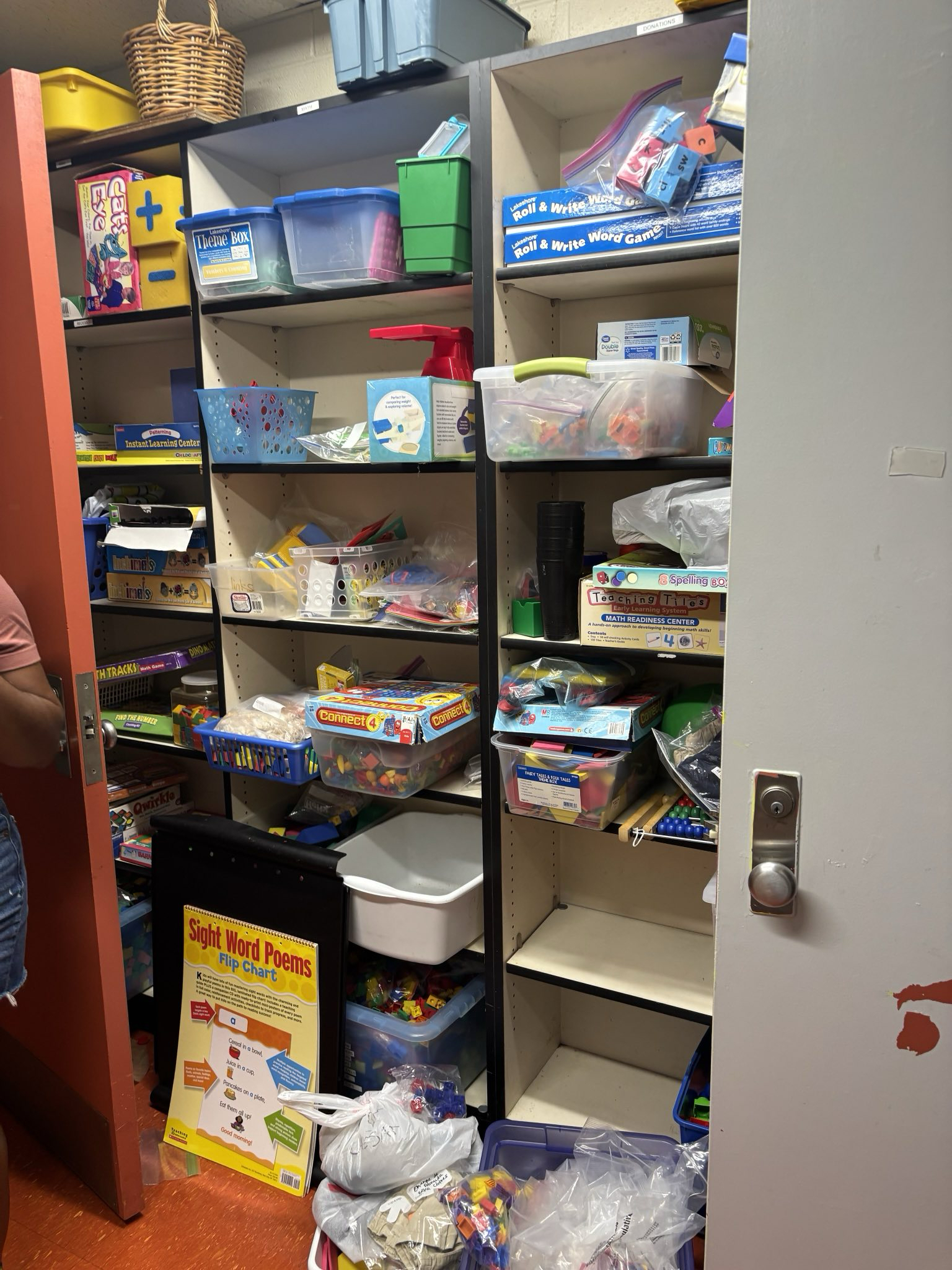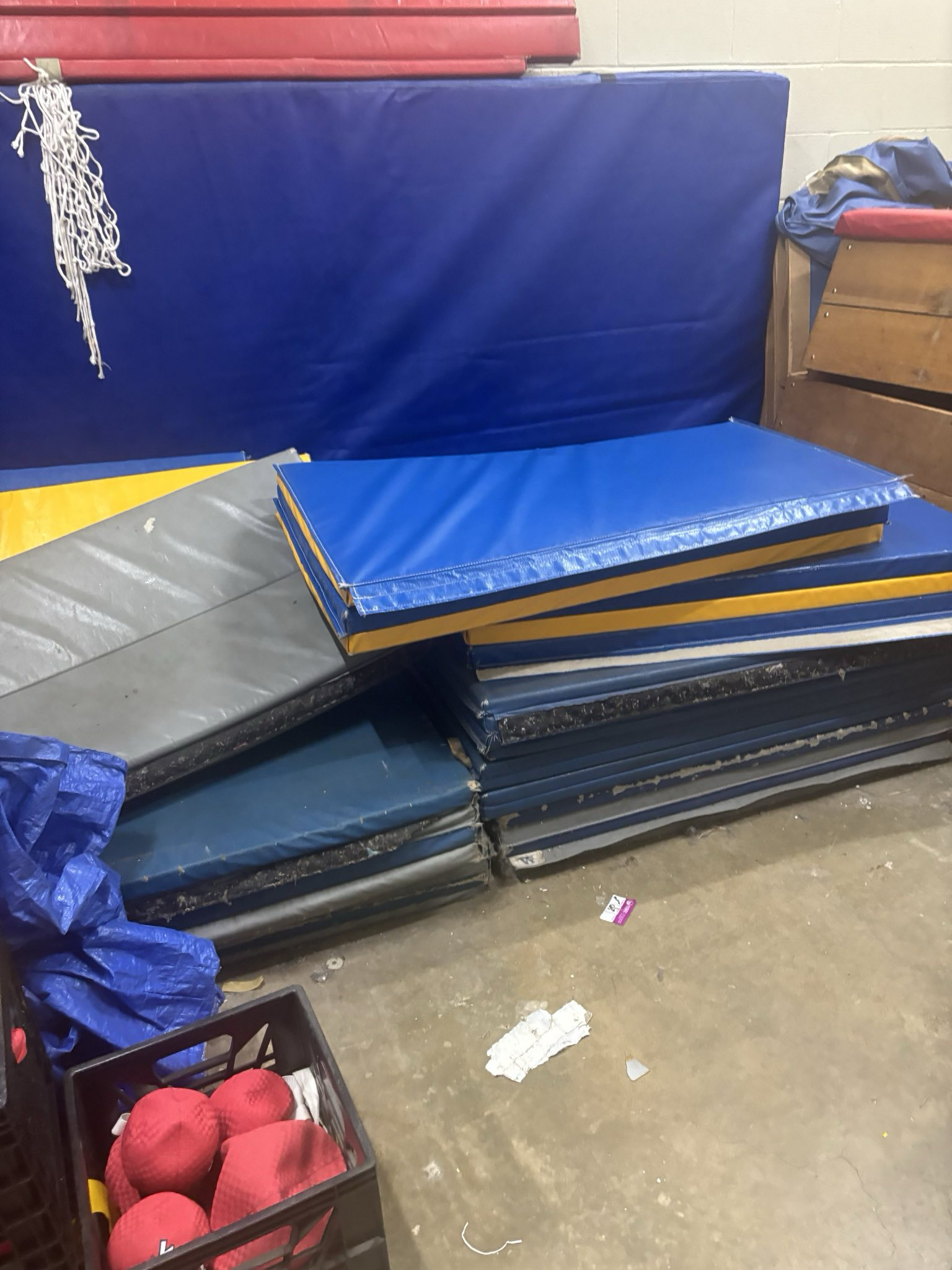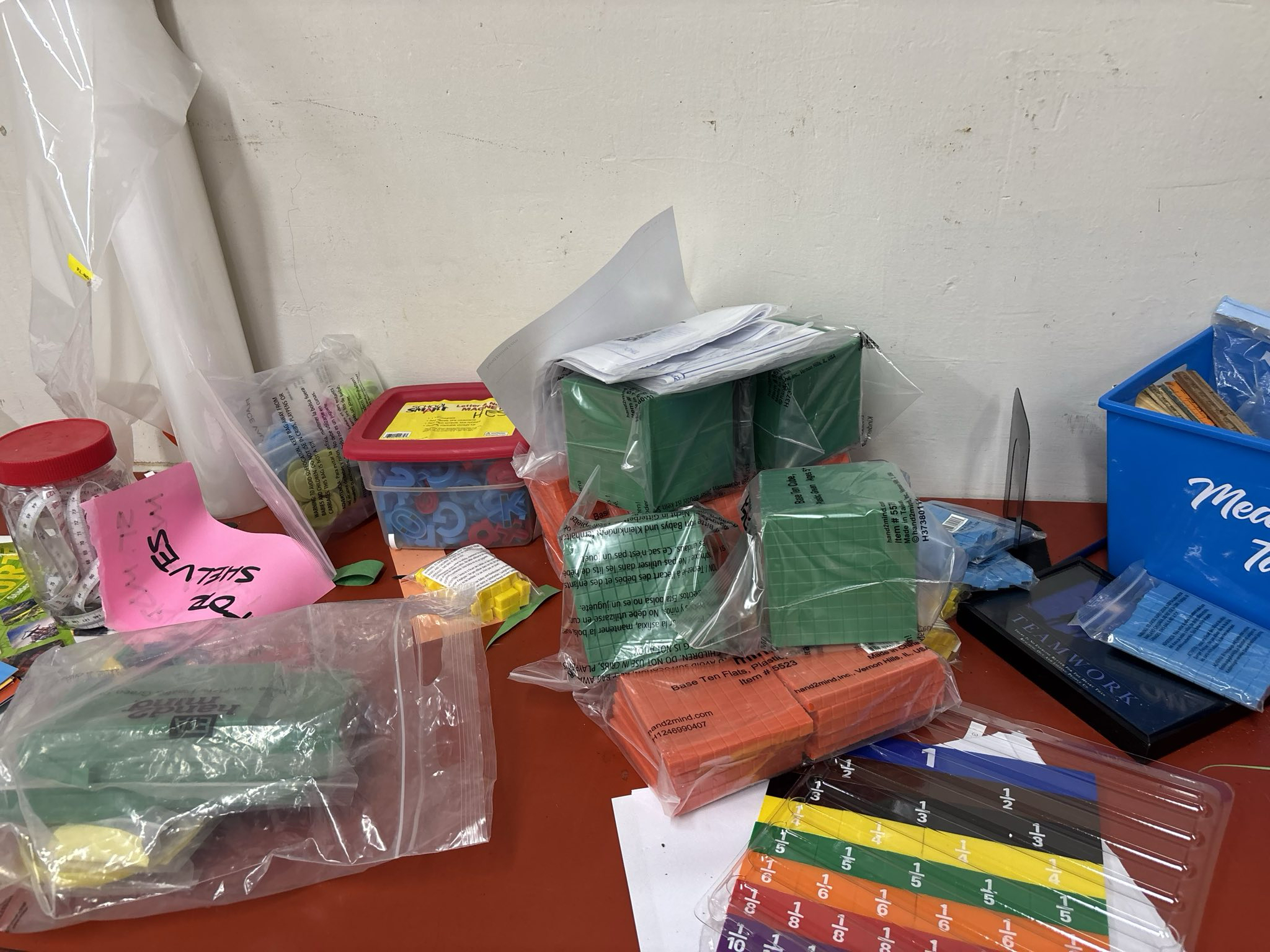Last month, a group of parents from Hyattsville Elementary School entered the building set for demolition. They were there to collect items from the teacher’s lounge that had been bought by the parent-teacher association and uniforms remaining from the school’s clothing closet.
However, as they entered the building, they were shocked to find an unmonitored room filled with binders holding confidential student information, including financial details and emergency contact data. They also discovered classrooms stocked with thousands of dollars worth of school supplies and equipment, such as gym mats, library books, microscopes, and musical instruments, which they were informed would be discarded by the end of the day.
Support kami, ada hadiah spesial untuk anda.
Klik di sini: https://indonesiacrowd.com/support-bonus/
Much of it wasn’t entirely new, but it was still in very good condition,” said Sara Bendoraitis, a parent whose child is entering fourth grade and was part of the group assisting with cleaning out the clothing closet. “It was just an enormous amount of waste that was going to occur.
Hyattsville Elementary is among 11 schools in the Prince George’s County district that are being torn down as part of a large-scale construction initiative, with eight new buildings set to be completed by 2028 under a public-private collaboration.
The parents’ finding of documents and remaining supplies raised concerns about how frequently costly equipment and reusable school items are abandoned during construction — and whether officials took proper steps to safeguard student privacy.
Support us — there's a special gift for you.
Click here: https://indonesiacrowd.com/support-bonus/
Lynn McCawley, a representative from Prince George’s County Public Schools, stated on Friday that the parents entered the facility during the relocation process and observed some equipment that was still scheduled to be moved to a storage facility. McCawley mentioned that the school district later recovered copiers, art class kilns, music and kitchen equipment, while certain outdated furniture was discarded.
A group of parents first visited the school in June to remove items from a teacher’s lounge that had been bought by the parent-teacher association. Upon entering, they also noticed several boxes ready for collection by the district. Bendoraitis mentioned that the movers informed the parents they would take as much as possible that day, with the rest being discarded.
Later that Friday afternoon, once the movers had departed, the parents discovered multiple boxes containing school supplies. They inquired with the school’s vice principals about some of the items, but were informed they were considered waste, according to Bendoraitis. The next Monday, the parents met with the school administration to find out how much additional time they would need to empty the teacher’s lounge and clothing closet before the building was handed over to a contractor. Administration stated that the keys would be transferred at noon on that day, Bendoraitis noted.
The parents hurried to load as many items into their vehicles as they could, shuttling back and forth between the elementary school and a storage facility. At first, they had intended to store only uniforms and other clothes, but now they were also collecting some school supplies.
“We were really worried at that moment, thinking, ‘How can we make the most of the school experience, knowing there are five of us and whatever cars we can find?’” she said.


Bendoraitis mentioned that the parents are still listing the items and garments they collected, and have not received additional information from the district.
Parents also discovered a storage room filled with binders containing student records, including details about students’ financial information, family doctors, and emergency contacts, as noted in documents examined by The Washington Post. The parents were worried that the administrators’ failure to appropriately dispose of these records breached the Family Education Rights and Privacy Act, a federal law meant to protect students’ personal information from being made public.
Matthew Humbard, a parent whose child is entering fifth grade, learned about the records’ discovery through a friend and expressed concern, as contractors without training in student privacy regulations also had access to the room. He worried that his family’s personal details might have been disclosed.
Humbard mentioned that he had already believed the unused school supplies were “severely mismanaged,” but “it’s the FERPA-related issues that truly angered him.”
Someplace in our financial records,” he said. “Why wouldn’t they get rid of them? Why wouldn’t they shred them?
McCawley, the district representative, mentioned that school personnel were provided instructions from the Office of Student Records regarding the secure handling, moving, and storage of student-related records. She did not detail the specific nature of these instructions.
LeRoy Rooker, a senior fellow with the American Association of Collegiate Registrars and Admissions Officers, stated that not removing the data constituted a clear breach of the law, as it “constitutes an unauthorized release of several student educational records.” He noted that FERPA does not specify how such information should be disposed of, but it clearly emphasizes that the data should not be readily available to individuals outside of school officials and a student’s parents or guardians.
[The parents] should be upset about it,” said Rooker, who headed the U.S. Education Department’s Family Policy Compliance Office for over two decades. “That school should never have left them in an unsafe area of a building that is set to be demolished.







